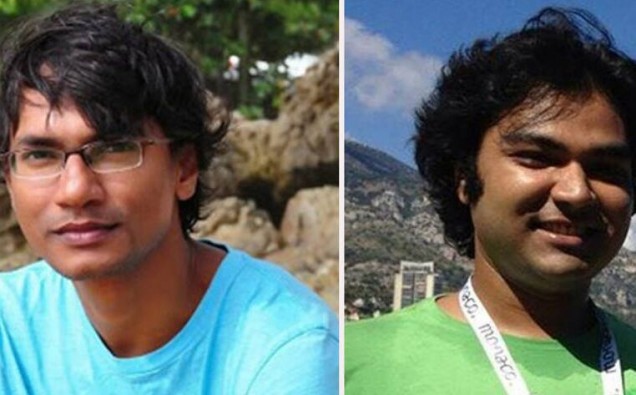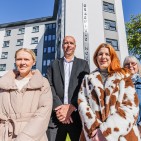Two Bangladeshi LGBT advocates were murdered in 2016 and eight members of an al-Qaeda affiliated terrorist group have been charged with the killing.
Xulhaz Mannan and Mahbub Tonoy, aged thirty-five died in April 2016 after an assault party gained entry into Mannan’s house in Dhaka by pretending to be parcel couriers.
Mannan was the editor of Bangladesh’s first LGBT magazine Roopbaan. He was also predominantly responsible for organising the country’s first pride rally – the Rainbow Rally. The rally was organised as an annual protest for recognition of LGBT rights.
Each of the eight charged men belongs to a militant group by the name of Ansar al-Islam. This militant group has carried out violent attacks on Bangladeshi civil society figures who it views as ‘enemies of Islam’.
Its victims list included atheist journalists, members of religious minorities and even foreign aid workers.
The LGBT community has experienced its most brutal side however.
The group was also behind the murder of a secular blogger Avijit Roy in 2015. Avijit reportedly had published a book in Bengali on homosexuality.
It is also believed by many that the group were to be blamed for the murder of liberal writers namely Faisal Arefin Dipan and Shahjahan Bachchu.
Ansal al-Islam is known to receive a good amount of financial and logistical support from al-Qaeda. It is also known that many of its original members were also trained by the group in Afghanistan.
During the tenure of conservative Prime Minister Sheikh Hasina, the LGBTQ community in Bangladesh has been subjected to violent attacks.
Al-Qaeda said it had encouraged the killings because Mannan and Tonoy – who both also worked for the United States Agency for International Development (USAID) – aimed to ‘promote homosexuality’ in Bangladesh.
The Bangladeshi government meanwhile has done little to protect its vulnerable LGBT community.
Prime Minister Sheikh Hasina is a staunch representative of the traditionally secular Awami League party and she has adopted a concrete religious policy. According to this policy, the Bangladeshi Prime Minister made her appeal to an increasingly Islamised electorate over the past decade.
Her government despite so many years of attaining freedom from the British still upholds the colonial law which deems same-sex relationships illegal, and she has turned a blind eye to human rights abuses.
According to Human Rights Watch, the harassment of the LGBT community by the Bangladeshi police is a common practice in the country.
In one incident in 2017, 28 transgender citizens of he country, commonly known as hijra, were arrested and then paraded in front of the press.
The current on-going hostile attitudes towards members of the LGBT community from both the religion and also the state have seen many activists flee the country and take shelter in other countries with lenient LGBT laws.
Between 2015 and 2017, it has been found that Bangladesh had the second highest number of asylum applications to the UK due to sexual orientation.
Looks like Bangladesh do not have a favourable environment for the LGBT community at all.
PRIYANKA DUTTA

















